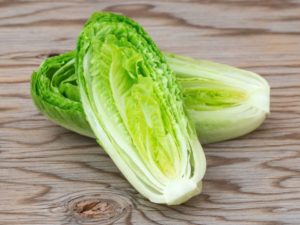Being in the “food industry” for the last 26 years has given me a lot of insight into the good and the bad of how our food is produced. Late last week when I stumbled upon yet another E. coli outbreak linked to leafy greens – specifically romaine – that had been hidden from public view, I was more disgusted than surprised.
Why keep from the public that 23 people were sickened and 11 hospitalized from once again consuming romaine lettuce grown on the central coast of California? Although the consuming public was kept in the dark, it is without question that government, industry and academia knew that the outbreak happened, but they all chose to hide it until late this evening – so much for “transparency” and so much for “food safety culture.”
We will not have a safe food supply when facts are hidden from consumers. We will not have a safe food supply until there really is honesty and transparency by those in government, industry (growers, shippers, processors and retailers – grocery stores and restaurants) and academia charged with consumer food safety.
I call bullshit on the FDA, CDC and Health Departments of Arizona, California, Florida, Georgia, Illinois, Maryland, North Carolina, Nevada, New York, Oregon, Pennsylvania and South Carolina for hiding vital information from the public. And, those in industry (growers, shippers, processors and retailers – grocery stores and restaurants) and academia, shame on you.
From the FDA this evening:
Today, the U.S. Food and Drug Administration is sharing news of a recent E. coli O157:H7 outbreak, involving 23 illnesses, that was likely associated with romaine lettuce. No deaths were reported. The active investigation has reached its end and the outbreak appears to be over. The FDA and the U.S. Centers for Disease Control did not identify actionable information for consumers during this investigation. Additionally, when romaine lettuce was identified as the likely source of the outbreak, the available data at the time indicated that the outbreak was not ongoing and romaine lettuce eaten by sick people was past its shelf life and no longer available for sale. The FDA is communicating details about the outbreak at this time to help ensure full awareness by the public and to highlight the ongoing importance of industry actions to help ensure the safety of leafy greens. Federal health officials do not believe there is a current or ongoing risk to public health.
CDC notified the FDA of this illness cluster in mid-September 2019 and the agency promptly initiated a traceback investigation. The FDA, CDC, along with state and local partners, investigated the illnesses associated with the outbreak. A total of 23 people infected with the outbreak strain of E. coli O157:H7 were reported from 12 states: Arizona (3), California (8), Florida (1), Georgia (1), Illinois (2), Maryland (1), North Carolina (1), Nevada (1), New York (1), Oregon (1), Pennsylvania (2) and South Carolina (1). Eleven people were hospitalized and no deaths were reported. Illnesses started on dates ranging from July 12, 2019 to Sept. 8, 2019. No illnesses were reported after CDC began investigating the outbreak on Sept. 17, 2019.
Investigators were sent to visit farms located in California’s central coast region which were identified through the traceback investigation. They collected and tested many environmental samples, and the outbreak strain was not identified. While romaine lettuce is the likely cause of the outbreak, the investigation did not identify a common source or point where contamination occurred. Since the outbreak strain was not detected in samples collected from farms during the traceback investigation, and there have been no new cases since Sept. 8, 2019, the outbreak appears to be over.
The FDA remains committed to improving the safety of leafy greens and traceability from farm to fork.
Again, bullshit!